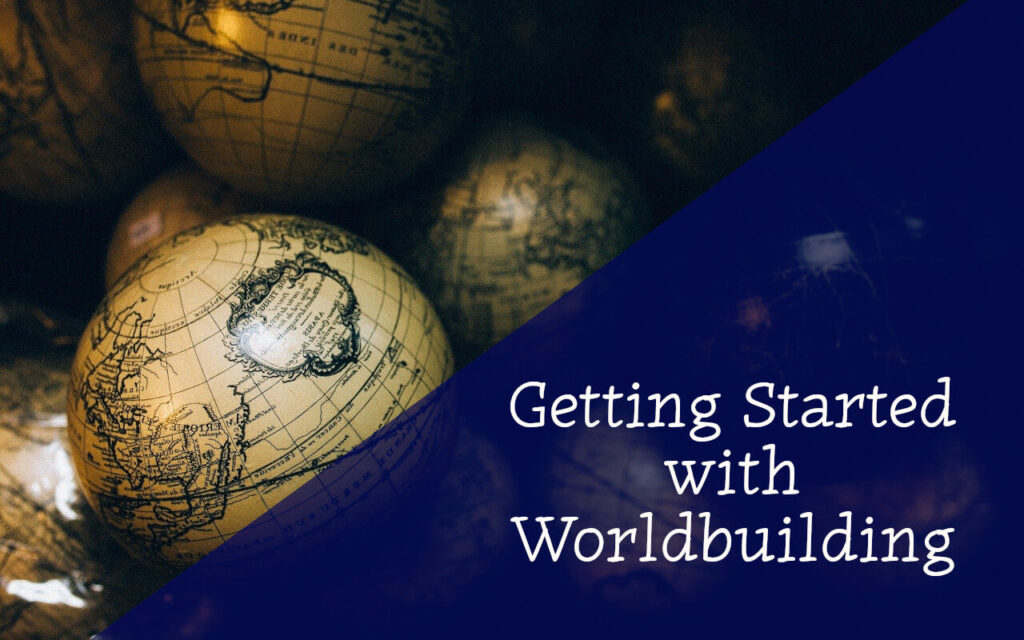Previously we have discussed the various sub-genres within the speculative fiction umbrella. Understanding which sub-genre you are writing will help determine which aspects of worldbuilding you need to focus on.

What is Worldbuilding?
When writing in the fantasy and science fiction genres, worldbuilding is a term you will hear often. Worldbuilding refers to the creation of the imaginary world (or imaginary aspects of our world) in which your story takes place. It encompasses every aspect of that world from the environment, to the cultural history of its people, to the laws of science, magic, and humanity (or whatever race you choose to populate your world with). The goal of worldbuilding is to create a place that feels so real to the reader they’ll want to add it to their bucket list of vacation spots.
Why is Worldbuilding so Important?
Sure you can skip the worldbuilding part of writing but the more you understand about your story’s world, the richer it will be for your readers. Good worldbuilding helps ensure consistency and believability. It also makes your story that much more interesting because the reader isn’t just enjoying a story and getting to know new characters, they’re exploring a whole new place with laws and customs they are unfamiliar with.
Another reason worldbuilding is important is because the reader will wonder about the world even if you don’t. They’ll notice inconsistencies and ask questions about why things are the way they are. A little bit of worldbuilding can go a long way.
Where to Start Worldbuilding?
So how do you go about worldbuilding? As with every aspect of writing there are a hundred different approaches, and the challenge is to find or create a method that works for you.
It’s easy to get lost in worldbuilding, so remember that it’s not the end goal. Worldbuilding is simply the back drop of the story you are telling. Try to find a balance: you need to know enough about the world to make it real for your readers, but not so much that you get lost in the rabbit hole of creation.
Typically when you are ready to worldbuild it’s because you have a story idea of some variety. This will influence where you start your worldbuilding, and where you start may be different for every story you write. For example, if you have an idea for a great magical show down, then it’s best to start with how magic works and build everything else around that. If you have an idea about a character having to go on a long quest, you may want to start with the geography.
What follows is a list of five aspects of worldbuilding worth considering and a few questions to get you started. I like to limit my answers to only the relevant areas of the world. So under Countries, I’d only mention aspects of countries my characters are going to visit or that play a crucial role in the story.
Land and Animals:
- What is the climate like in general? What are some common weather patterns? How do those patterns affect the world?
- Are natural disasters common? If so, what sorts?
- What does the landscape look like? How does it vary in a rural setting versus and urban one?
- How is the land used? What are common natural resources?
- What are common animals? How are animals used or treated?
Countries:
- How many countries are there? What are they called?
- How is each country governed?
- Which countries are rivals, which are allies, and which are neutral? Have there been any wars?
- What language do they speak?
- What is their currency?
Customs and Daily Life:
- What do people eat on a daily basis? What about on special occasions?
- Are there common rituals or special events?
- What are their customs, superstitions, and beliefs?
- What sort of education does the average person have?
- How do people spend their spare time?
Religion:
- Is there a religion? Only one, or are there many?
- How prevalent is religion in the daily life of the people?
- Is religion important to any of your main characters? Why or why not?
- Do the gods actually exist? Do the inhabitants know this for certain?
- Are there any major religious holidays?
Magic:
- Is there only one type of magic? How was it created?
- Where does magical energy come from? What is its source?
- How does magic work? Do you have to learn it, is it intuitive, or is it different for different people?
- Who can use magic?
- How does the use of magic affect the person using it?
Whether you like to plan everything before you start writing or fly by the seat of your pants, understanding the different aspects of worldbuilding will help you integrate the necessary information into your writing. Over the next few posts, we will explore in more depth each aspect of worldbuilding I’ve mentioned here.
What’s your worldbuilding strategy? Do you plan all the little details or just make things up as you go? Let me know in the comments.

2 thoughts on “Worldbuilding Basics: What it is and Where to Start”